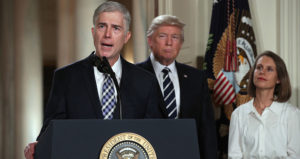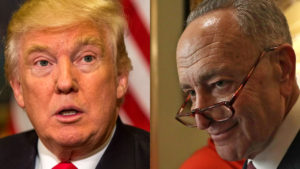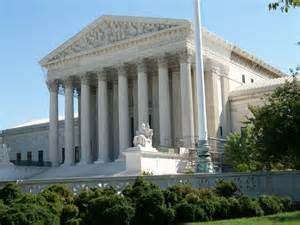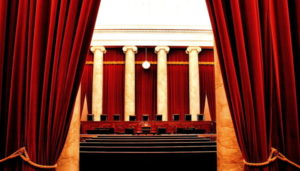I just hate it when principle runs smack head-on into real-time politics.
The nomination of Neil Gorsuch to the U.S. Supreme Court has created just such a conundrum — at least for me.
The principle involves whether to fill the ninth seat on the nation’s highest court, an argument I made when President Barack Obama nominated Judge Merrick Garland to fill the vacancy created by the death of Justice Antonin Scalia.
It wasn’t to be for the Garland and the president; Senate Republicans threw up their roadblock and obstructed the nomination by refusing even to consider it.
They were wrong!
Now a new president has nominated Gorsuch to Scalia’s vacant seat. Senate Democrats are threatening to do all they can to obstruct it, to block Donald Trump’s nominee from taking his seat on the bench.
I’m swallowing real hard as I write this, but it is just as wrong for Democrats to obstruct this nominee as it was for Republicans to obstruct Merrick Garland.
The principle of presidential prerogative stands firm in my view.
So does the need for the Supreme Court to be whole. It needs nine seats occupied to avoid tie votes that in effect send important cases back to lower-court rulings.
At one level, I sympathize with Democrats’ rage at the way their GOP “friends” played raw politics with Garland’s nomination. The GOP leadership took a huge gamble on the hope that a Republican would be elected president. The odds of that gamble paying off seemed to lengthen considerably when Donald Trump won the GOP presidential nomination this past summer.
Trump fooled a lot of us by defeating Hillary Rodham Clinton.
Now it’s Donald Trump’s turn to nominate people to become justices on the highest court in America.
By all accounts, Gorsuch is qualified. He’s not my ideal justice candidate. To be candid, given Trump’s seeming lack of ideological conviction, I’m not at all certain he even fits whatever core values inform the president’s thinking.
The fundamental point, though, is whether it is right for Democrats to threaten to keep the seat vacant for another year — or perhaps for the entire length of time a Republican president is recommending potential justices.
It is not right!
Judge Gorsuch deserves a Senate committee hearing and a full vote in the Senate — just as Judge Garland did.
Principle ought to matter more than politics — even when one’s political sensibilities are being trampled.









